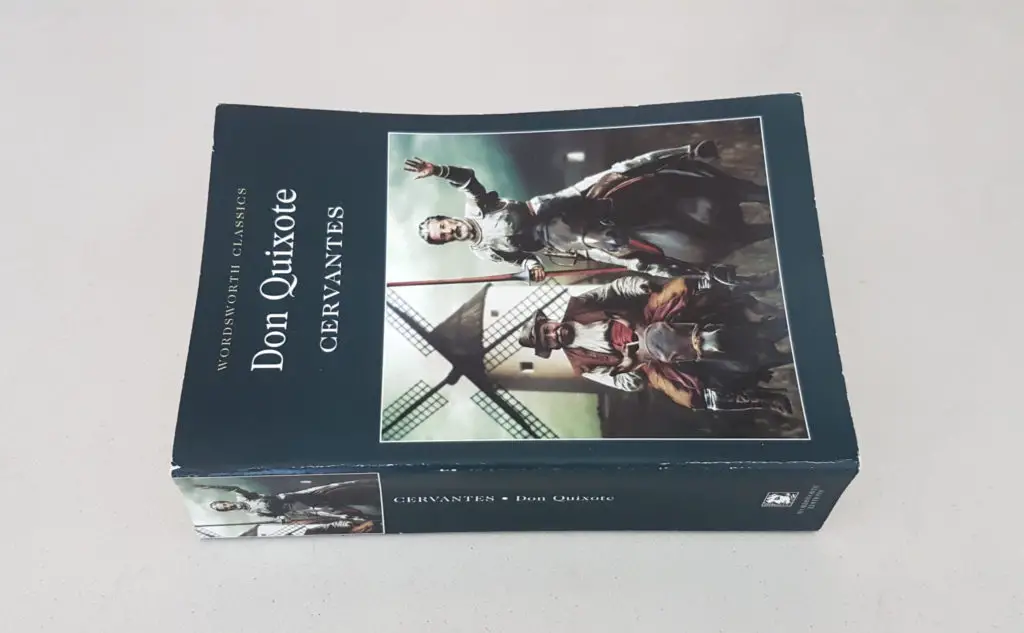The language in this translation helped transport me to another time and place where I was entertained by all manner of well-meaning but misguided behavior. What made the silliness tolerable was that the narration doesn’t force the reader into the character’s perspective. I could sit back comfortably and laugh because the character is always over there, on a stage, so to speak. I like omniscient narrators; I don’t like unreliable narrators. Here’s what our omniscient narrator says about Don Quixote (page 14):
[H]e rode so softly, and the sun’s heat increased so fast, and was so violent, that it would have been sufficient to have melted his brains had he had any left.
The elevated language and long, flowing sentence, of which this is just the very tail end, left me unprepared for the apt insult lurking all the way at the end. When I read this joke, I knew I was going to enjoy the novel.
I was utterly floored in the second half of the book to learn that the characters are aware that they have been written about. The idea of breaking the fourth wall is older than I would ever have guessed! The narrator goes to great lengths to insist that he is now narrating the ONE TRUE SEQUEL, never mind those bumbling copycats who had tried, between the publication of Part 1 and the publication of Part 2, to steal the author’s glory and book sales.

What do the star ratings mean?

